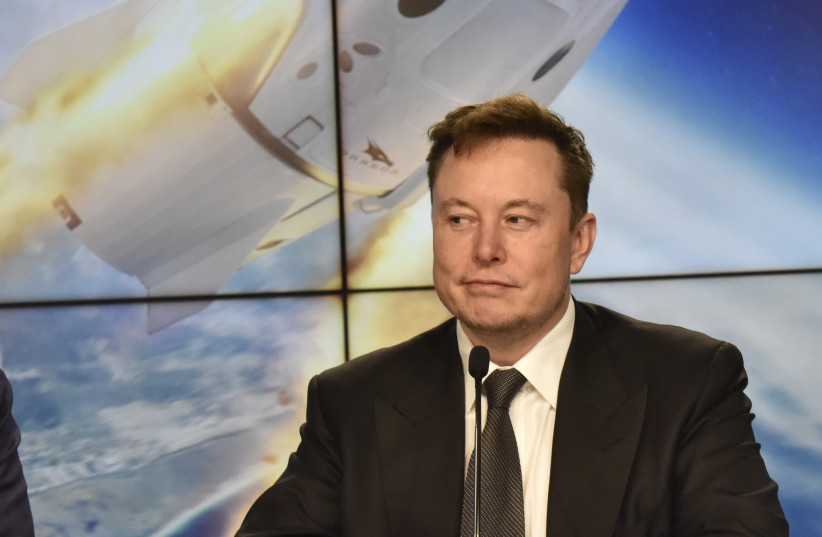Elon Musk has a long history of making showy product announcements that are light on details — a humanoid robot, a brain-computer interface, a supersonic transportation system — years before the innovations he’s touting are ready for market, if they ever materialize at all.
That was the approach he brought to his campaign to buy Twitter, initially publicizing his $44 billion bid with no financing or plan for operating the San Francisco company. Wall Street dismissed it as yet another piece of Musk vaporware.
But just 11 days after Musk offered to buy Twitter, and three weeks after he became its largest shareholder, the social media platform announced it had agreed to sell itself to the billionaire. The deal, for $54.20 a share in cash, is expected to close this year.
Even though Musk’s tactics this month appeared unconventional or even half-cocked, merger-and-acquisition experts say his strategy incorporated sound negotiation principles — with a twist of his distinctive, unpredictable style.
“You’re along for the ride with Elon Musk and it’s not going to be the standard corporate trip,” said G. Richard Shell, a professor at the University of Pennsylvania and director of Wharton’s Executive Negotiation Workshop. “Musk is ready, fire, aim. He’s not a private equity firm that has a bunch of very sober and methodical executives who are trying to beat the market return.”

Company takeover attempts are frequently plodding endeavors that can drag on for months. In contrast, Musk’s pursuit of Twitter began when he bought a 9.2% stake in the company on April 4, punctuating the news with a cheeky “Oh hi lol” tweet.
The next day, Chief Executive Parag Agrawal announced that Twitter was appointing Musk to its board, a decision that was reversed five days later, after a tweet in which Musk wondered whether Twitter was “dying” because of low activity among top users such as Taylor Swift and Justin Bieber.
Then, on April 14, Musk tweeted: “I made an offer” along with a link to the SEC filing in which he laid out his plan to take the company private. The opening bid, he said, was his “best and final.”
“I am not playing the back-and-forth game. I have moved straight to the end,” he said in the filing. “It’s a high price and your shareholders will love it. If the deal doesn’t work, given that I don’t have confidence in management nor do I believe I can drive the necessary change in the public market, I would need to reconsider my position as a shareholder. This is not a threat.”
A prolific Twitter user, Musk used the platform to drum up support for his bid as the company adopted a poison pill, a defensive measure to ward off unsolicited takeovers.
“Taking Twitter private at $54.20 should be up to shareholders, not the board,” Musk tweeted, along with a poll that garnered more than 2.8 million votes (83.5% of respondents said yes).
“If our twitter bid succeeds, we will defeat the spam bots or die trying!” he tweeted a week later.
Whether it was sideshow or strategy, “he was negotiating in a way that fits his public persona,” said Danny Ertel, founding partner at Vantage Partners, which assists companies with negotiations. “He wants to do something that is splashy, that is a little controversial, and he’s going to leverage the tools he’s got, which is his personal presence and his 80-plus-million Twitter followers and his balance sheet.”
Ultimately, money — Musk offered a 38% premium over Twitter’s closing share price on April 1 — more than public posturing was what mattered. Some analysts have also speculated that the company’s quarterly earnings, which are scheduled to be reported Thursday, are weak and that no other bidders were interested.
“To offer that much money to buy out a company like Twitter is unusual,” said Ed Brodow, a negotiation expert and author of “Negotiation Boot Camp.” “But Musk has an unusual reputation — he’s not your run-of-the-mill business executive.”
Musk’s other unorthodox moves — such as including an apparent marijuana reference in his price of $54.20 a share — were just “consistent with his personality,” Brodow said. “He’s outspoken, he’s idiosyncratic — you better take him seriously because he’s the richest man in the world.”
That said, being negative during negotiations can have unintended consequences, said Elizabeth Umphress, a professor of management at the University of Washington’s Michael G. Foster School of Business. As Musk assumes control over Twitter, he might have to contend with disgruntled employees and friction that otherwise wouldn’t exist had he gone about his bid in a more professional, buttoned-up manner.
Umphress said research has shown that being respectful in negotiations is most likely to yield positive outcomes for both parties involved — though Musk’s power and influence may have given him a pass. “People who have billions of dollars can sometimes violate these assumptions,” she said.
Still, “we really want to make our negotiations not reality TV-worthy,” she said.
Shell, the Wharton professor, said the antics and turbocharged acquisition timeline were signature Musk, reflecting his genuine excitement rather than entertainment for entertainment’s sake.
“It’s easy to think of him as quirky when he’s actually a genius,” he said. “As deals go, it was fast, it was furious. That rapidity and that change of direction and the sort of speed with which it all unfolded: very unusual. It was turn left, turn right, go straight, done.”
What’s less obvious is what Musk will do with the company once he’s officially its owner.
“When Warren Buffett buys a company, we’re evaluating it on ‘Did Warren Buffett make another good deal?’ ” Shell said. “With Elon Musk, we have a different set of metrics to judge success for him: Is it transformational in some way? Does it change the way we think about something? Does it open up our imaginations to some new way of conducting business or innovation?”
